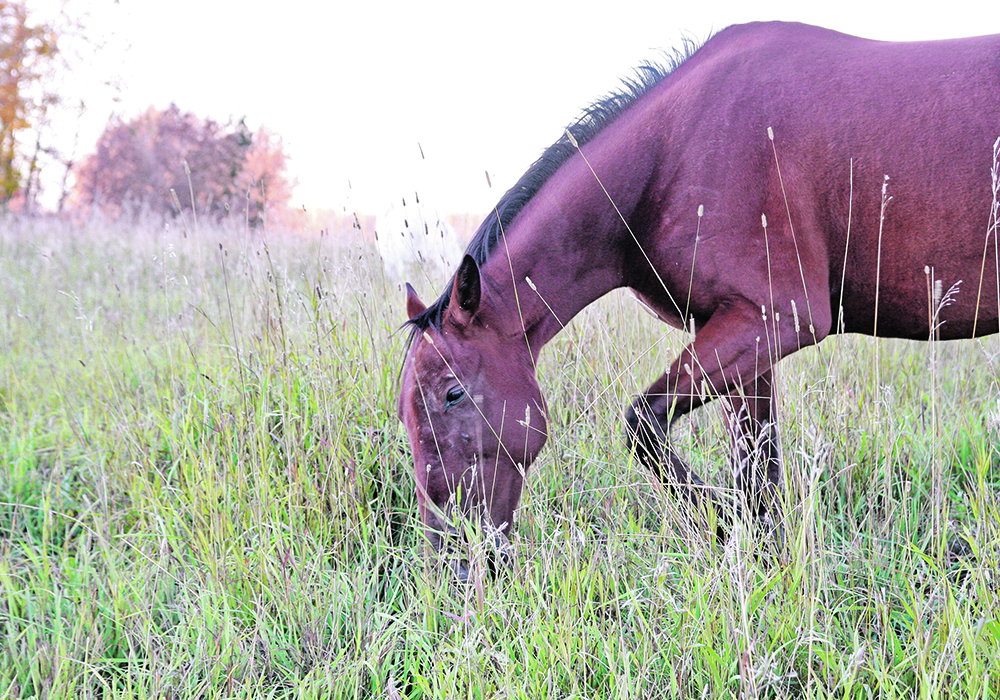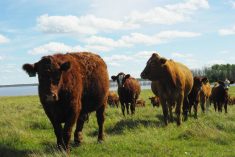The first mosquitoes of the year that carry the disease were found in Sask. and Man. last month; precautions are urged
Saskatchewan and Manitoba have found mosquitoes carrying West Nile virus.
In Manitoba, 24 mosquitoes with West Nile virus, known as the Culex tarsalis mosquito, were collected from various parts of the province between Aug. 8-14. It brings the total to 86 found this year.
Mosquitoes with WNV were found in Saskatchewan the same week, located in moist mixed-grass and prairie aspen parkland, known as zone three of the province. With the recent rain, the region is considered a moderate risk.
In Manitoba, there have been no reported human cases or horse cases of WNV. Saskatchewan has reported no human cases of WNV, but there have been four cases in horses this year.
Read Also

Farming Smarter receives financial boost from Alberta government for potato research
Farming Smarter near Lethbridge got a boost to its research equipment, thanks to the Alberta government’s increase in funding for research associations.
Horses are at risk for WNV as are alpacas and llamas. However, it’s more common in horses.
Julia Montgomery, an associate professor with the Western College of Veterinary Medicine, said horses with WNV will display symptoms similar to humans.
“Many horses may have no symptoms, so owners might not be aware when they do develop symptoms,” Montgomery said.
Like in humans, WNV can be neuroinvasive, so the symptoms horses may show are neurological.
“The body system that is target is the central nervous system,” she said. “So the brain and the spinal cord…. It can affect their awareness to what we call mentation, their behaviour, so they may, for example, either be more quieter than normal or more agitated than normal, they may have sort of twitching, facial twitching, and they may show other neurologic symptoms.”
Although there are things producers can do to protect their horses from getting WNV, such as diligent mosquito control, Montgomery said the best thing is to get horses vaccinated.
“We recommend that every horse that lives in an at-risk area, which is any horse living in Western Canada in mosquito season, should be vaccinated. And it’s a good vaccine and it’s the safe vaccine.”
Montgomery said without vaccinations, treatments for horses that show symptoms of WNV could become expensive.
“Prevention is really key,” she said.
“We call it a core vaccine. That means that nearly every horse, even if it never leaves its home farm, should be vaccinated because again, the mosquito really doesn’t care if it travels or not.”
There is no vaccine to treat humans with WNV. However, the governments of Saskatchewan and Manitoba have outlined ways to stay safe from WNV. These include reducing the amount of time spent outdoors in the evening, when mosquitos are most active, and wearing light colours and insect repellent.
People can also prevent the laying of mosquito larvae. Mosquitoes prefer stagnant water. Producers in particular should look out for stagnant water in eavestroughs, rain barrels, old tires, and other things that may collect water. For dugouts, the city of Edmonton suggests keeping the edges free of vegetation.
“If water is not in short supply and if it is feasible, water troughs for farm stock can be flushed once a week to remove developing mosquito larvae,” said a Manitoba government fact sheet called Mosquito Control for Homeowners.


















